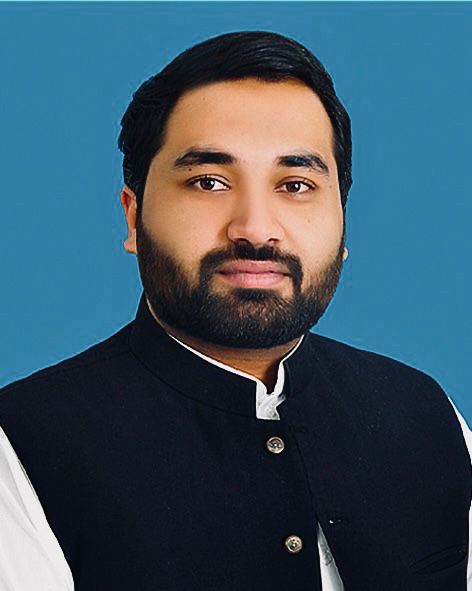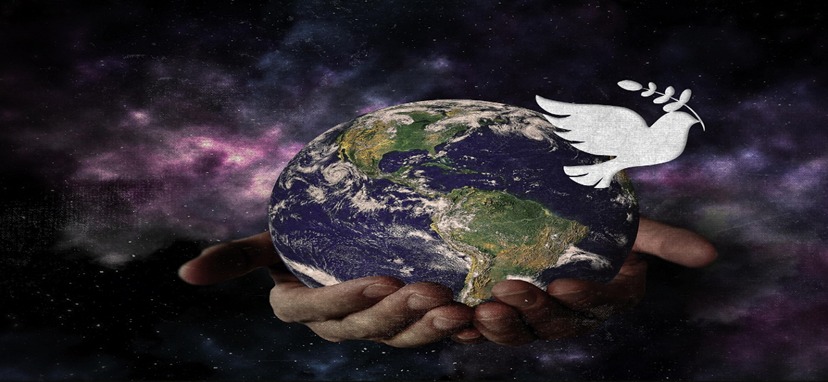Legacy of Bacha Khan Baba: A Beacon of Non-Violence in a Turbulent World
By:Kashif Khan
In the annals of history, there are few figures whose commitment to non-violence shines as brightly as that of Khan Abdul Ghaffar Khan, affectionately known as Bacha Khan Baba. Born in 1890 in the tranquil village of Utmanzai, near Peshawar, Khyber Pakhtunkhwa Pakistan, he dedicated his life to promoting peace, justice, and equality, leaving behind a legacy that continues to inspire generations worldwide.
Bacha Khan Baba’s philosophy of non-violence, also known as the “Khudai Khidmatgar Movement” or “Servants of God,” was deeply rooted in the teachings of Islam and the principles of Mahatma Gandhi. He believed in the power of love and compassion to overcome hatred and violence, advocating for the rights of the oppressed and marginalized through peaceful means.
One of the most remarkable aspects of Bacha Khan Baba’s philosophy was its relevance and effectiveness in the face of adversity. At a time when the Indian subcontinent was engulfed in the flames of partition and communal violence, he stood firm in his commitment to non-violence, even in the face of severe repression by the British colonial authorities and later by the Pakistani government.
Bacha Khan Baba’s commitment to non-violence was not just a theoretical concept; it was a way of life. He and his followers faced unimaginable hardships and sacrifices, yet they remained steadfast in their belief in the power of non-violence to bring about meaningful change. His movement was instrumental in empowering women, promoting education, and fostering communal harmony in a region torn apart by sectarian strife.
To understand the relevance of Bacha Khan Baba’s philosophy in the present day, we must look back at history and draw lessons from the past. Throughout history, there have been numerous instances where non-violence has triumphed over violence, from the civil rights movement in the United States to the struggle against apartheid in South Africa. These movements serve as a testament to the enduring power of non-violence to effect change and bring about justice.
In the present day, the world is faced with numerous challenges, from escalating conflicts and environmental degradation to social inequality and political unrest. In such turbulent times, the teachings of Bacha Khan Baba offer a beacon of hope and a path towards peace.
One of the key lessons we can learn from Bacha Khan Baba’s philosophy is the importance of dialogue and reconciliation in resolving conflicts. He believed that true peace could only be achieved through understanding and empathy, not through force or coercion. In today’s world, where conflicts seem to be escalating, his message of peace and reconciliation is more relevant than ever.
Another important aspect of Bacha Khan Baba’s philosophy is his emphasis on education and empowerment. He believed that education was the key to empowering individuals and communities, enabling them to break free from the cycle of violence and oppression. In today’s world, where education is still out of reach for many, his message serves as a reminder of the transformative power of knowledge.
Last but not least, Bacha Khan Baba’s philosophy of non-violence is a timeless and universal message that transcends boundaries and resonates with people of all backgrounds. His life and teachings are a testament to the enduring power of non-violence to bring about positive change in the world. As we face the challenges of the present day, let us draw inspiration from his example and work towards a more peaceful and just world for all.
The legacy of Bacha Khan Baba continues to inspire millions around the globe; his message of non-violence echos through the corridors of history, reminding us of the power of love and compassion in the face of adversity. As we navigate the complexities of the modern world, let us remember the words of this great man, who once said, “I am going to give you such a weapon that the police and the army will not be able to stand against it.” That weapon, he believed, was non-violence, a force more powerful than any weapon devised by man.
Bacha Khan Baba’s vision of a peaceful and just society remains as relevant today as it was during his lifetime. In a world beset by violence and conflict, his teachings offer a path towards reconciliation and understanding. By embracing the principles of non-violence and compassion, we can honor his legacy and work towards a brighter future for all.
“The writer is a freelance journalist based in KP, Khyber Pakhtunkhwa. He is a graduate of Journalism and Mass Communication. He can be reached at kashifkhan.jmc2022@gmail.com. He tweets @thekshfkhan.”


